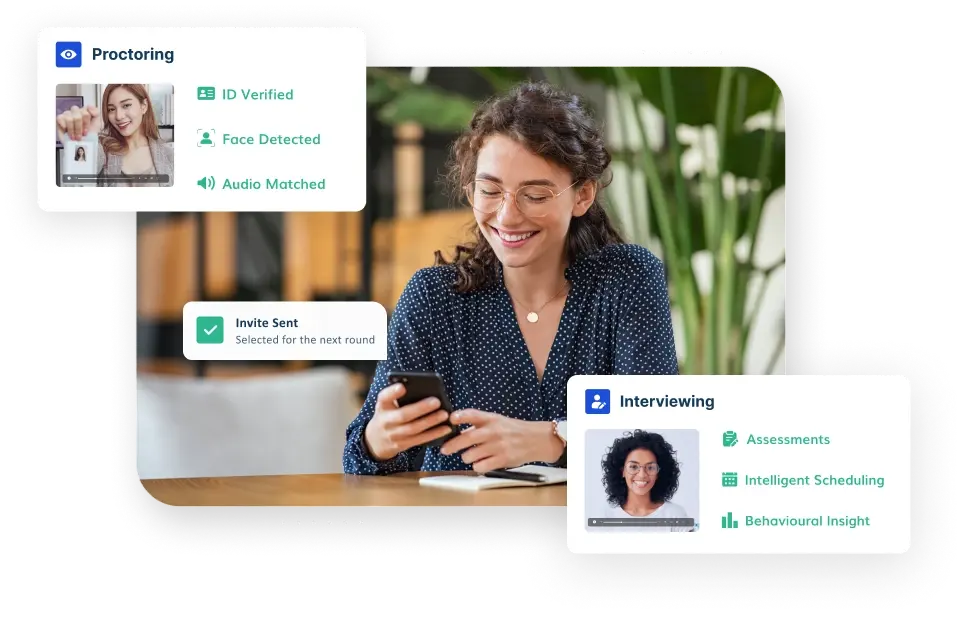Exam & Proctoring
For simpler, more secure exam proctoring
Interviewing
For quick, confident, and bias-free talent decisions
AI Agents and Add-ons
Smart Tools for Enhanced Automation and Productivity
-
Alvy: AI ProctorAgentic AI
World’s First Patented Agentic AI Proctoring
-
Automated Proctoring
Automated remote proctoring software
-
Record & Review
AI proctoring with human review
-
Live Remote Proctoring
Proctoring with live
invigilator -
ID Verification
Secure Online Exams with Advanced ID Match
-
Secure Browser
Prevent unauthorized access, control test environment
-
Online Exam Platform
Speed, versatile, and secured online exams
-
Bookings & Payments
Delivering a smooth and empowering exam experience
-
Form Builder
Intuitive form-creation tool
-
AI Lite Proctoring
Light on Cost, Heavy on Security
-
In-Center Proctoring
AI Technology to Secure All In-Center Exam Sessions
-
Ivy: AI InterviewerAgentic AI
The First Enterprise-Ready, Human-Like AI Interview Agent
-
Intelligent Scheduling
Conflict-free, automated interview scheduling
-
On-Demand Interviews
On-demand video interviewing for hassle-free recruitment
-
Candidate Verification
Protect your reputation, say no to proxy candidates
-
Interview Proctoring
Additional Layer of Security from Modern Interview Frauds
-
Live Interviews Rooms
Efficiently interview, review, and collaborate
-
Interview Builder
Evaluate Objectively with Consistent Candidate Experience
-
Interview Insights
Effective, AI-supported, bias-free candidate interviews
-
Workflow Automation
Streamline your recruitment process from start to finish
-
Telephone Screening
Evaluate Candidates Faster with Secure Phone Interviews
-
Livy: AI Assistant Agentic AI
Automate your hiring workflows, from sourcing to scheduling
-
Alvy - AI Proctor
World's first AI Proctoring Agent powered by LLMs
-

MS Teams Copilot
Increase collaboration in your hiring process
-
JD Generator
Instantly generate job descriptions & questions
-
MS Forms Proctoring
Enable Proctoring in Microsoft Forms with Talview
-
Google Forms Proctoring
Enable Proctoring in Google Forms with Talview
-
Proctoring API
AI-Powered, Seamlessly Integrated. Built for Integrity
-
Qton - AI Quiz Generator
Instantly Create Smart Questions for Tests and Assessments
x





